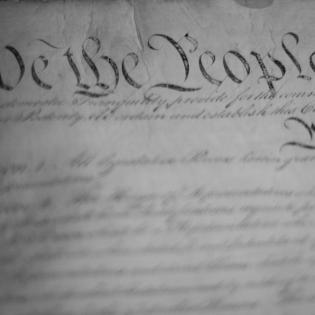Advise and Consent
Focus Question: Why is it important for people to stay informed and participate in government processes? What are some ways to participate at the local level?
Photo credit: US Constitution by Kim Davies is licensed under CC by 2.0
Students explore the importance of limited government and citizen participation in their communities for the common good. Students research the local community foundation, raise funds, and learn parliamentary procedure. They explore the role of Youth Advisory Councils.
Even the person viewed as the most powerful person in the world does not have unlimited power. Constitutionally, the president of the United States is limited by the "advise and consent" rule (and other checks and balances). The learners look at the importance of limiting government and identify how the common good benefits when citizens and students participate in their communities.
Participants identify and compare the different roles of the four sectors of the economy (government, business, nonprofit, and family). They identify which sector does what and observe how they approach differently the sometimes overlapping responsibilities. Participants describe the work of foundations and state the purpose of an organization's mission statement.
Now familiar with how a community foundation serves the community, the learners form a Youth Advisory Committee and use parliamentary procedure to conduct business.
Participants will survey members of the community (school or local area) to determine a need, write proposals to satisfy the need, consider doing an optional one-day fundraiser to help fill that need, serve on a board of directors or a youth advisory committee to determine how such funds will be spent, and evaluate the project.
